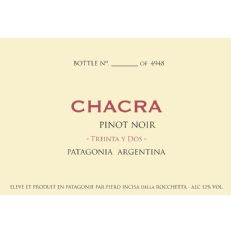Sign In Chef

By using our free meal planner (and the rest of spoonacular.com) you have to agree that you and only you are responsible for anything that happens to you because of something you have read on this site or have bought/cooked/eaten because of this site. After all, the only person who controls what you put in your mouth is you, right?
Spoonacular is a recipe search engine that sources recipes from across the web. We do our best to find recipes suitable for many diets — whether vegetarian, vegan, gluten free, dairy free, etc. — but we cannot guarantee that a recipe's ingredients are safe for your diet. Always read ingredient lists from the original source (follow the link from the "Instructions" field) in case an ingredient has been incorrectly extracted from the original source or has been labeled incorrectly in any way. Moreover, it is important that you always read the labels on every product you buy to see if the product could cause an allergic reaction or if it conflicts with your personal or religious beliefs. If you are still not sure after reading the label, contact the manufacturer.
We also attempt to estimate the cost and calculate the nutritional information for the recipes found on our site. Again, we cannot guarantee the accuracy of this information. Additionally, our nutrition visualizer that suggests that you limit sodium, sugar, etc., and get enough protein, vitamins, and minerals is not intended as medical advice. Similarly, our health tips are based on articles we have read from various sources across the web, and are not based on any medical training. The team behind spoonacular does not possess any medical qualifications and the information may be found to be incorrect or out of date based on future research. If you need help planning your diet or determining which foods (and recipes) are safe for you, contact a registered dietitian, allergist, or another medical professional.
Spoonacular is not responsible for any adverse effects or damages that occur because of your use of the website or any information it provides (e.g. after cooking/consuming a recipe on spoonacular.com or on any of the sites we link to, after reading information from articles or shared via social media, etc.)
× Image © Pink When
Image © Pink When
$1.63 per serving

6 likes

Ready in 8 hours and 10 minutes

Spoonacular Score: 63%
Pulled Pork Nachos requires roughly 8 hours and 10 minutes from start to finish. One serving contains 352 calories, 19g of protein, and 16g of fat. For $1.63 per serving, you get a hor d'oeuvre that serves 8. This recipe from Pink When requires nacho chips, cream, pork rub, and pork shoulder. Only a few people really liked this American dish. 6 people were glad they tried this recipe. It is a good option if you're following a gluten free diet. All things considered, we decided this recipe deserves a spoonacular score of 63%. This score is solid. Similar recipes include Pulled Pork Nachos, Pulled Pork Nachos, and Pulled Pork Nachos.
Pinot Noir, Sparkling Wine, and Riesling are my top picks for Nachos. If you're serving a selection of appetizers, you can't go wrong with these. Both are very food friendly and complement a variety of flavors. The Bodega Chacra Treinta y Dos Pinot Noir with a 5 out of 5 star rating seems like a good match. It costs about 100 dollars per bottle.
 Chacra Treinta y Dos is a single vineyard wine, made from old vineyards planted in 1932 on a land layered with clay, sand and pebbles. The most structured of all Chacra’s wines, Chacra Treinta y Dos is meant to be aged. Its soft characteristics and velvety tannins, however, make it drinkable at a younger age. This red balances toasted spice and mesquite notes with the macerated cherry fruit character, remaining fresh through the mineral-tinged finish.
Chacra Treinta y Dos is a single vineyard wine, made from old vineyards planted in 1932 on a land layered with clay, sand and pebbles. The most structured of all Chacra’s wines, Chacra Treinta y Dos is meant to be aged. Its soft characteristics and velvety tannins, however, make it drinkable at a younger age. This red balances toasted spice and mesquite notes with the macerated cherry fruit character, remaining fresh through the mineral-tinged finish.
» Get this wine on Wine.com
















Read the detailed instructions on Pink When